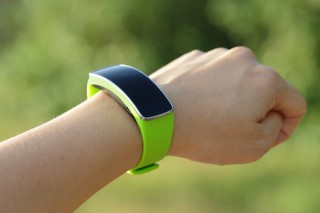From tapping into social networking to leveraging big data, technology is now being harnessed to not only keep efficient medical records but to ultimately keep people healthy.
According to Forbes, the federal government is planning to spend up to $29 billion in incentives to encourage hospitals and doctors’ offices to digitize health care records in the next few years.
How does health care and technology mix exactly? Below are some ways that health information technology is revolutionizing the industry.
Simplifying data to offer better diagnostics and treatments.
IBM has been developing a supercomputer, which in 2011 beat out “Jeopardy” champions, Ken Jennings and Brad Rutter, to win $1 million (donated to charity). The computer is now used to help physicians make better diagnoses and recommend treatments by searching information from similar cases.
Helping doctors communicate with patients.
 Virtual programs, similar to Skype, are now allowing patients to interact with doctors in the comfort of their own home. These apps and video programs cut down time and travel and allow patients who suffer from mobility issues to see their doctors in a timelier manner than traditional visits.
Virtual programs, similar to Skype, are now allowing patients to interact with doctors in the comfort of their own home. These apps and video programs cut down time and travel and allow patients who suffer from mobility issues to see their doctors in a timelier manner than traditional visits.
Linking doctors with other doctors.
Social networking allows patients to be more easily connected with their physicians and enables doctors to work better together to take care of their patients. There’s a social network called Doximity that is exclusive to physicians. It allows physicians to share treatment information to better care for their patients all over the world.
Helping patients stay healthy.
 There are countless apps available for download on today’s smartphones, and a growing number are related to personal health. Many of these apps are free and are aimed at helping users stay active, sleep well and eat healthy. Among them is Fitbit, a pedometer that tracks sleep and activity trends and uses social networking and gaming to motivate users.
There are countless apps available for download on today’s smartphones, and a growing number are related to personal health. Many of these apps are free and are aimed at helping users stay active, sleep well and eat healthy. Among them is Fitbit, a pedometer that tracks sleep and activity trends and uses social networking and gaming to motivate users.
Making test results more readily available.
Rather than waiting for a call from the doctor or having to go in to receive test results, mobile apps allow patients to see medical records and test results immediately after posting.
In an age where technology reigns supreme, it’s encouraging to see that the health care system is catching up with health information technology.
